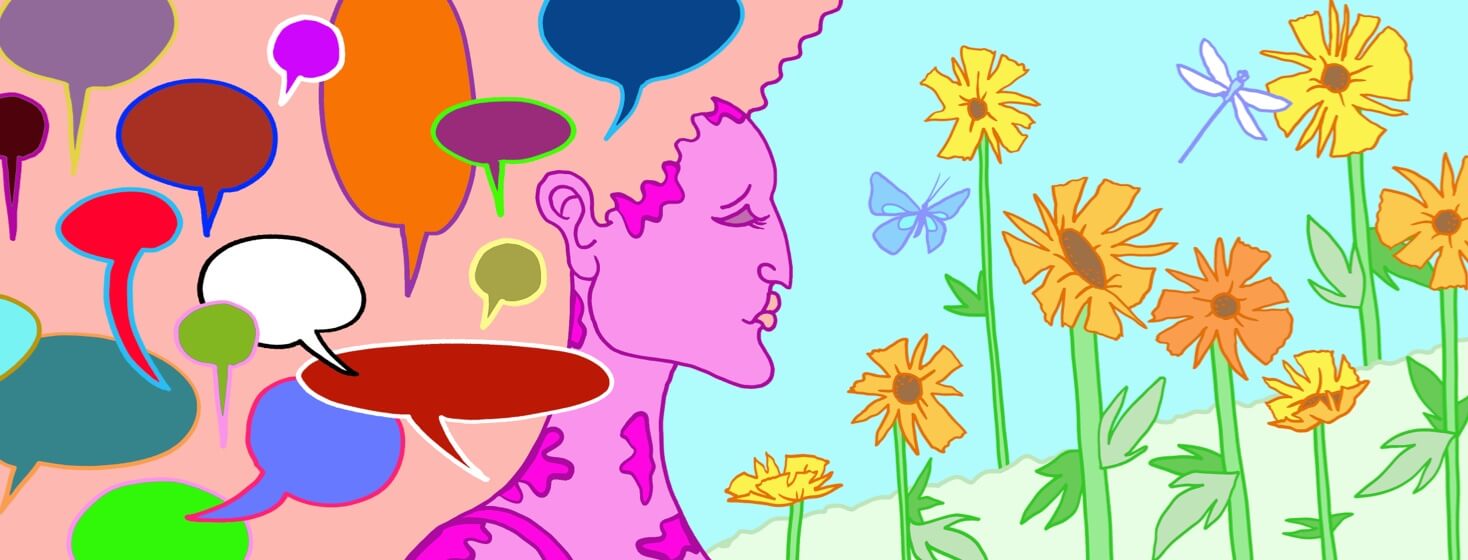What Gets Under Your Skin?
We all know the saying “that gets under my skin.” Most of us have likely used it at one point or another. But have we really considered what the root of that saying is? What does it actually mean? And how does this apply to eczema and other skin conditions?
Using symbolism to dive deeper
The definition of “under my skin” is “to become a source of irritation” or “to be a source of obsession,” according to the Merriam-Webster dictionary.1
What if we can dissect this and take this as a symbol and delve into that further? In eczema, our skin is irritated (obviously!) So, what if this is pointing to something “under the skin” that is irritated? In other words, something on a mental, emotional, or even spiritual level irritating us, manifesting through the skin, and begging to be resolved.
The skin is the body’s largest organ, covering our whole “inner world” from head to toe. It is quite literally connected to everything inside of us. So, what if even the location of our flare-ups could be pointing to something deeper?
Looking for the source of the problem
We work so hard on finding external “irritants.” While there may be plenty of them in our environment, what if we are looking in the wrong place? What if the irritants are within and manifesting externally on our bodies?
As we know, itching releases good chemicals in our brains. In a way, it is a way to alleviate irritation and inflammation. It is why it becomes addicting and almost an obsession. But it only prolongs the irritation and makes it worse, even if it temporarily feels good. It is sort of like putting a band-aid on it temporarily without getting to the root cause.
When we scratch, we release good chemicals to try to counteract the irritation we feel within, when really what we need to do is get closer to the pain and experience it. The only way to clear any trauma, pain, or irritation is to feel it fully. So, scratching in itself is completely counterproductive and a form of escape. It keeps us focused on the external instead of going to the source of the issue.
What is irritating me?
Perhaps the first step is observing our thoughts and looking for patterns in what we're constantly thinking about. Then, ask ourselves where those thoughts that have us running around in circles are coming from. Be with it, sit with it, and get to know it. Instead of avoiding it, we want to get closer to the source of discomfort and irritation. It isn’t always easy and takes immense courage and bravery. However, it is the only way to truly heal those internal wounds.
I spent most of my life avoiding my feelings and trying to run away and escape. I learned that our trauma and feelings will always catch up to us – no matter how deep we bury them. They will resurface again – over and over, until we acknowledge the source. It takes practice and work, but we have to get past the skin and into our inner world to find the source.
Everything is connected
As human beings, we constantly tend to point our fingers at everything else in the external world instead of looking within. We think everything outside of us is the problem. It must be that irritant or cream, that person, that event, that thing. It’s always something “out there,” and many of us do everything we can to avoid going deeper within.
It is human nature and what we are taught to do since birth – but especially in the case of eczema. The issue is that we can avoid all the allergens and “irritants” and continue to point our fingers “out there,” but until we look within and find where the irritation is coming from, the relief will be minimal or temporary.
The body is a full system - all levels working together as one cohesive unit (or at least should be). In Western medicine, we fail to recognize this and only treat one part as if it is not all interconnected.
It is time to start looking at this differently. It begins by recognizing that the way to healing is to address all aspects – the emotional, physical, mental, emotional, and spiritual.

Join the conversation